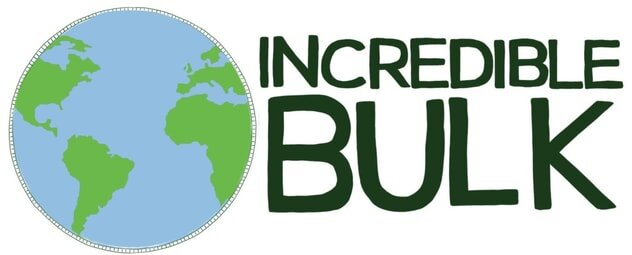The Big Plastic Count
/In May 2022 and March 2024 Everyday Plastic and Greenpeace UK joined forces for the Big Plastic Count campaign. For one week they asked households to count their plastic waste and submit it for a large scale citizen science experiment to see how big the plastics problem is in the UK. This incredible piece of citizen science has allowed them to build a unique picture of household plastic habits.
Results from May 2022:
248,957 people from 97,948 households across the UK took part in the count, thats one in every 262 UK households counting their plastic packaging waste for one week. Here are some of the key findings:
Nearly a quarter of a million people counted 6,437,813 pieces of plastic packaging waste in just one week.
If the totals submitted are assumed to be typical, this indicates that UK households are throwing away or recycling an estimated 1.85 billion pieces of plastic packaging a week, or 96.57 billion pieces a year.
The most commonly counted items were fruit and vegetable packaging (1.02 million pieces), closely followed by snack bags, packets and wrappers (1.01 million pieces).
83% of the plastic waste recorded was food and drink packaging.
57% was soft plastic packaging.
62% of the pieces of plastic recorded in the count are either not collected or poorly collected for recycling by UK local authorities, and likely to end up in landfill or incinerated.
Only 12% of the plastic waste is likely to be recycled at reprocessing facilities in the UK. More of the UK’s plastic waste (17%) is being shipped overseas than being recycled at home.
Results from March 2024:
224,381 people from 77,783 households across the UK took part in the count, together with 28,397 pupils. Here are some of the key findings:
Together they counted 4,639,685 pieces of plastic packaging waste in just one week.
If the totals submitted are assumed to be typical, this indicates that UK households are throwing away or recycling an estimated 1.7 billion pieces of plastic packaging a week, or 90 billion pieces a year.
Of the plastic counted it’s estimated that 58% is incinerated, 17% recycled, 14% exported and 11% landfilled.
What were the key conclusions from the 2022 report?
The UK’s recycling systems cannot cope with the amount of plastic packaging waste leaving our homes – estimated to be a staggering 1.85 billion pieces per week – of which only 12% is likely to be recycled in the UK. Even with the most ambitious recycling infrastructure targets and investment, the UK waste system won’t be able to cope with the combination of more plastic production and the waste import bans ahead.
Too much focus is placed on recycling and making plastic recyclable, rather than reducing plastic in the first place. A circular economy needs to be built around materials that can be reused and recycled many times over, which most plastic cannot.
The only solution to plastic pollution is stopping our reliance on plastic. This means rapidly transitioning to reusable packaging which caters to everyone’s needs, including those with disabilities.
The UK lags behind in the introduction of solutions. The government’s long-awaited DRS (already in place in many European countries), as well as the promised new Extended Producer Responsibility requirements, have been repeatedly delayed. Instead, the UK relies on incinerators and landfill sites, both of which emit huge amounts of harmful greenhouse gases and air pollution, as well as exports.
What were the key conclusions from the 2024 report?
Incineration % has gone up from 46% in 2022 to 58% in 2024. Incinerating plastic can release more carbon dioxide per tonne than burning coal.
Despite the harmful impacts caused by incineration and plastic waste in general governments and plastic producers are nowhere near meeting their promises to reduce plastic waste.
We need a strong, legally binding Global Plastics Treaty that cuts plastic production by 75% by 2024 for cleaner air, a greener environment and accessible packaging alternatives.
Right now, world leaders are negotiating The Global Plastics Treaty; an international legal agreement to prevent the harmful impacts of plastic. This United Nations Treaty is a once-in-a-generation chance to protect our planet from plastic pollution. If the UK government, with its powerful position on the world stage, champions bold, decisive action, we can end the age of plastic.
EMAIL YOUR MP TO BACK A STRONG PLASTICS TREATY
Our thoughts on the Big Plastic Count Results:
We were saddened to see that there was less public engagement for the second count. The plastic count per person was marginally better in 2024 at 21 pieces of plastic per person vs 26 in 2022 which is good to see. The numbers are shocking. Not only the overall total but the high percentages of plastic waste coming from food and drink packaging and how much of this plastic waste is the currently harder to recycle soft plastics. This has fueled our commitment to Incredible Bulk. Offering a refill service means that people can really reduce how much of this plastic waste they come across. Our main product range is normally packaged in flexible difficult to recycle plastics. By refilling these products our customers can avoid this type of plastic and reduce how much is being sent to incineration here in Cornwall.
There’s no doubt that big change is needed and we need government and industry to focus on switching off the plastics tap and invest instead in circular economy solutions which is why it’s important to take part in these events to help build evidence to take to government and businesses to create big change.
EMAIL YOUR MP TO BACK A STRONG PLASTICS TREATY
The Big Plastic Count Results 2022
The Big Plastic Count Results 2024
